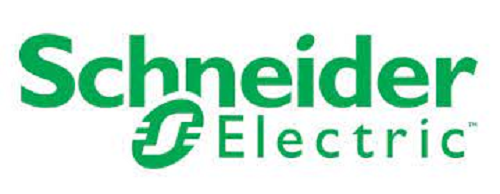Schneider Electric, in an effort to scale up electricity access and pave the way for a sustainable power sector in Nigeria, has partnered with Ikeja Electric (IE) to improve electricity distribution in its network
The collaboration would address common problems faced by electricity distribution companies in the country, namely the lack of traceability when faults occur on the network, leading to extended period of outages.
According to Schneider, the partnership is the first step towards setting up a digitized grid, starting with smart transformers. As part of Schneider’s Ecostruxure technology, these connected solutions would enable the remote monitoring and control of the grid, thus improving the quality and reliability of the network, as well as reducing operational costs for the DisCo. This would translate to less frequent fault occurrences and reduced downtime for customers of Ikeja Electric.
Mrs. Folake Soetan, Chief Executive Officer, Ikeja Disco, “this partnership exemplifies Ikeja Electric’s desire to leverage innovation and technology to improve customer experience, so it is driven largely with interest of customers at the heart of our business.
“We are delighted to partner with Schneider Electric on this project as it becomes imperative that we adopt a more strategic approach in managing our network. The introduction of smart Distribution Transformers will not only assist in drastically reducing downtime, but it will also further drive efficiency as we are able to better manage and maintain our network proactively. The digitization is in line with our mantra, Customer First, Technology Now.
Speaking in a telephone interview, Mojola Ola, Director, Marketing, Business Development & Access to Energy – Anglophone West Africa, Schneider Electric, stated “our collaboration with Ikeja Electric reflects a true commitment from both parties to drive the digital transformation of the grid, which would result in greater efficiency and access to energy for the population.”
He then added that with a proactive maintenance approach in place on the transformers, the frequency of downtime will drastically reduce “Instead of having reactive maintenance after a technical interruption, we offer a more proactive approach on the equipment as they can be set to trigger alerts for any issue on the network requiring attention, before downtime occurs. Even when faults do occur, because the network is smarter and connected to the cloud, they would have a quicker resolution time”.
Schneider Electric is a global specialist is energy management and software. Highlighting some of the company’s unique abilities to manage projects sustainably, Mr. Ola makes reference to the company’s knowledge transfer culture to members of the ecosystem – the entire value chain and leveraging locally trained teams to respond to fall outs “We are very much on the ground. One of the things that we do strongly in West Africa is to have a solid knowledge transfer culture. We put in a lot of effort and resources into human capacity development to ensure the project is sustainable. We are one of the few original equipment manufacturers that have a local services team to perform regular maintenance and we leverage our coverage across the country to respond swiftly to any fall out as they arise.”
The joint effort by Schneider and Ikeja Electric is a significant project. While the energy situation remains a grueling challenge in the country, partnerships such as this present an opportunity to improve electricity access and reliability of the grid supply across the country. In fulfilment to its global commitment and interest in the Nigerian space, Schneider says “For us, it is not just a business transaction, we appreciate the opportunity to create impact within Nigeria and that’s one reason why this project is top priority for us. It is not really possible to totally unleash the economic potential of the country if there isn’t regular and continuous power supply. We believe that ultimately all of us are going to be beneficiaries of this project once it is fully deployed”.
In 2021, the World Bank approved $500 million to support the government of Nigeria in improving its electricity distribution sector. There has also been a number of traction for the country such as the review of tariffs, the discos collaboration with mini grid developers to improve access and Mr. Ola is hopeful that a lot more changes will transform the sector – “We believe the digitized grid is the future. It is what will eventually happen. It may require some time to get there but I think we are on the right path”.


Comment here